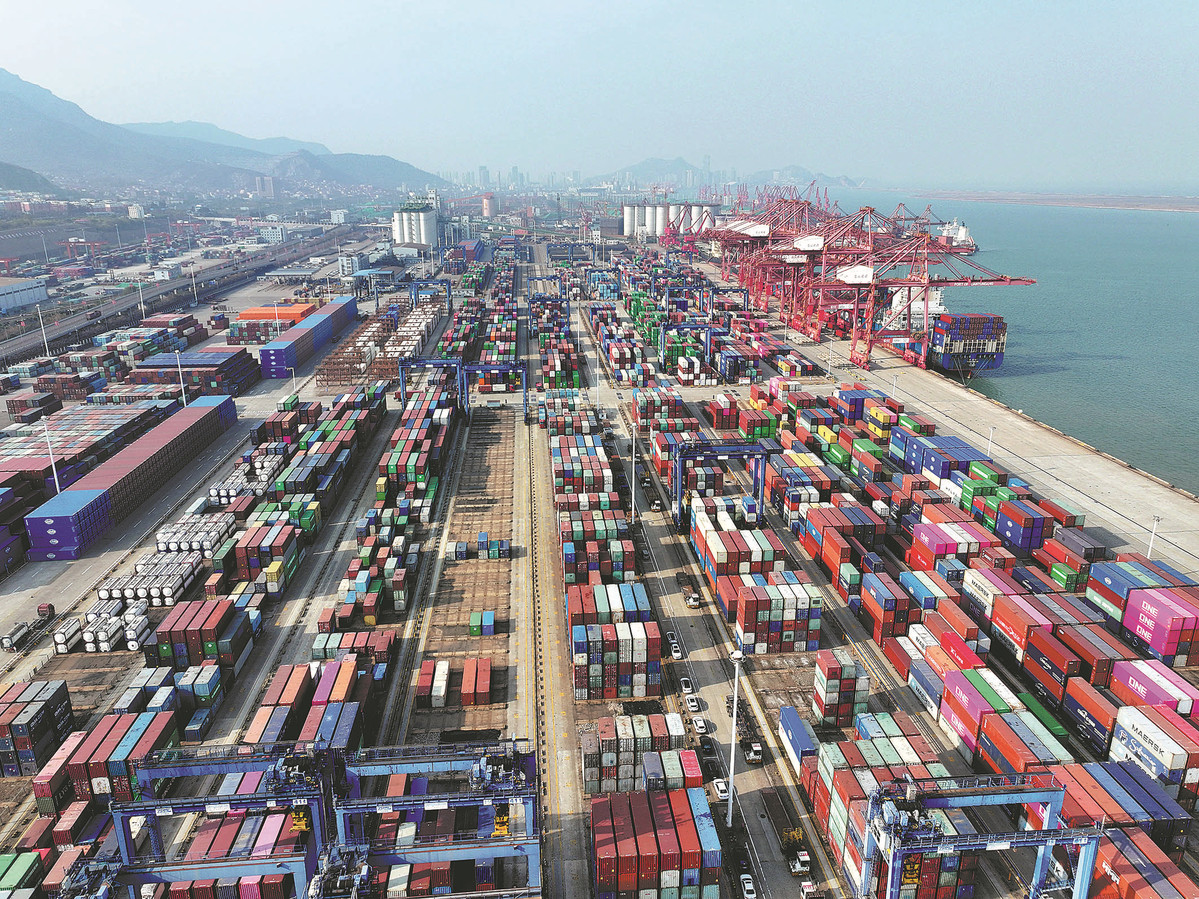Global South to counter protectionism


The meeting between senior Chinese and US officials in Geneva, Switzerland, last month succeeded in de-escalating trade tensions that began when the United States administration announced "reciprocal tariffs" to advance its protectionism and "America First" policy in April.
The negotiations between the two largest economies of the world have created a platform that now allows other countries affected by "reciprocal tariffs" to initiate bilateral talks with the US, to break trade barriers and renew the spirit of globalization and international trade.
Meanwhile, "liberation day" as US President Donald Trump described it, was also a wake-up call for the international community and especially countries in the Global South to recalibrate their trading system and diversify their markets. To this end, the Beijing Consensus reached at the 2025 Global South Financiers Forum under the theme "Illuminating Global South" provides the best policy mechanism to safeguard developing countries from unpredictable tariffs.
Countries in the Global South should prioritize the following actions.
First, they should strengthen financial connectivity through enhanced South-South cooperation. Currently, countries in the Global South contribute 42 percent of the total global GDP. By strengthening intra-regional trade and eliminating trade barriers among themselves, countries in the Global South can significantly reduce their vulnerability to protectionism and nationalism, ensuring unpredictable policies do not disrupt their economies.
Second, the countries need to foster mutual financial support by promoting inclusiveness. Different countries are at different stages of development. However, these nations need to pull together and continue championing the reforms of the international financial institutions. This will allow developing countries to be more involved in the operations of and decision making in these institutions that are dominated by countries in the Global North.
Third, safeguarding global financial stability with equity and efficiency is key. China has been a main proponent of equity and efficiency. For instance, in allocating resources and opportunities for African countries, China announced zero-tariff treatment for all products from Africa's least developed countries exporting to China during the 2024 Beijing Summit of the Forum on China-Africa Cooperation held in September. This initiative gave the poorest countries in Africa a comparable opportunity to access the market size of over 1.4 billion people.
Eligible African countries have begun to enjoy the benefits of the zero tariff treatment since December, showcasing China's efficiency in implementing its promises. More countries in the Global South can follow this example set by China and open their markets to one another, thus fostering greater economic integration and mutual growth.
Fourth, they should accelerate green economic transition through an eco-friendly approach. Countries in the Global South need to prioritize green development to accelerate their industrialization and trade cooperation.
China's leadership in enhancing green economic transition in the Global South is evident from various energy projects undertaken to boost industrial development and promote sustainable supply chains across the world.
Fifth, the nations should enhance deeper open cooperation by planning, building and benefiting together. Countries in the Global South need to promote the building of an equal and orderly multipolar world to facilitate common development.
They need to advance policies that advocate industrial development, technological advancement, trade promotion, infrastructure development and ecological civilization, among other modernization indicators, that are anchored on the principles of mutual respect, solidarity, win-win cooperation, openness and common prosperity. This will ensure no country or community is left behind.
Sixth, they should enrich financial culture through exchanges and mutual learning. Experience sharing is vital in mitigating potential economic shocks emanating from anti-globalization policies. Within the framework of the World Trade Organization rules, countries in the Global South can learn from each other and protect international trade.
Last but not least, they should build a prosperous world through equitable co-governance. The world has shifted from a unipolar to a multipolar governance system. Hegemony is on the retreat. Harmony among civilizations and peaceful development foster multilateral cooperation needed for the long-term sustainability of international trade.
Thus, it is of great need for countries in the Global South to build on this consensus to prevent any trade war that would push the global economy into a recession.
The author is executive director of the China-Africa Centre at the Africa Policy Institute.

































